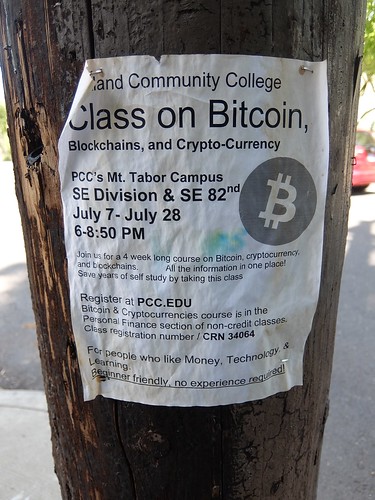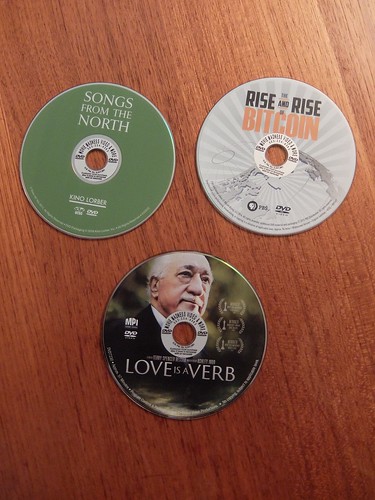Bitcoin has already enjoyed a lengthy timeline with lots of ups and downs, both in terms of its price, and its credibility. These two are related, but not in any simple way. That bitcoin would be worth stealing, and that investors could lose, is part of what's needed to build a narrative. The characters interviewed for this film understand it takes time to weave a storyline, build a brand.
This documentary focuses less on what the blockchain is, and how systems beyond bitcoin might use the same technology (and are already), and more on the relationship with the would-be regulators, in particular the Washington DC based apparatus.
I salute the movie-making team, a bitcoin enthusiast and his brother, the filmmaker, for covering that angle, which is far less dry than the mathematics, more a matter for geeks and nerds to master (subcultures bullish about their swelling ranks, from Singapore to Illinois to Panama and North Korea).
As a regional clerk of the IT Committee for a specific branch of the Quakers in the Columbia River area in West Region (AFSC's designation), I've been garnering feedback from all corners, Executive Committee included, on what to make of the entire crypto-currencies phenomenon.
I yakked with Euclid, former treasurer of Multnomah Meeting about that very question today before Business Meeting (which I skipped, though I helped out with setup and teardown). He expected we'd cash out if we got a bitcoin bequeathment, simply because we don't actively buy and sell, we're not traders. A mutual fund has active managers looking out for their customers. Bitcoin is known for its volatility. Dorene shared a similar picture on the committee listserv.
I've learned a lot about what physical properties a system needs to shoulder responsibility, and consensus is a big part of it. Quakers focus on consensus as a concept so there's a natural affinity here.
As I wrote to the editor of Western Friend awhile back (May 27 of this year, one typo fixed):
Regarding the bitcoin / blockchain thing, there's lots of resonance with the micro-lending movement, with which my parents were involved in both Cairo and Dhaka.
The Grameen bank gets lots of kudos. Quakers' Right Sharing of World Resources was at the forefront as well, albeit on a smaller scale. My parents identified their own micro-lending practices with the latter institution / program.
A lot of the same idealism is emerging in connection with "micro-payments" as well. Primary benefits are to the "unbanked", the majority of humans with no financial services, and yet starting to get smartphones and thereby connectivity.
Given how developing nations are looking to these new technologies with some hope, not to mention practical implementations (Africans and Filipinos are right now using the new tools to send home remittances), it stands to reason that Quakers, reputedly forward thinking, into planning ahead -- somewhat unlike End Timers who just sit on their hands waiting to get saved on Judgement Day -- need to be taking a look.
I think Kenneth Boulding would be, were he still with us.
It's in that spirit that I'm eager to go on record showing at least one IT Committee, however obscure, is raising the issue and taking it seriously.
A code school of the type that has alumni and school spirit would do well to sustain a gift shop that's somehow an exhibit in dogfooding, i.e. the code school itself has contributed to the gift shop's design.
Furthermore, shouldn't a code school gift shop accept at least one token geek currency if not more? The infrastructure around bitcoin makes that easy.
However, in helping future generations get up to speed in this space, we need "play currencies" that might just have some in-school significance, and run on a blockchain in ways that illuminate the core principles. That might include QR-code readers connecting to store accounts. Coders need to play with realistic simulations before unleashing their creations upon an unsuspecting world.
That crypto-currency companies might want to sponsor such exhibits precisely in order to help educate the lay public about the underlying algorithms, as well as the more surface technologies, is understandable and why the #CodeCastle model is geared to meet this need.


